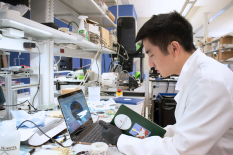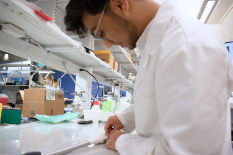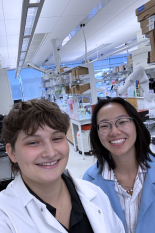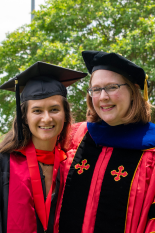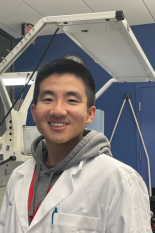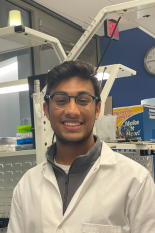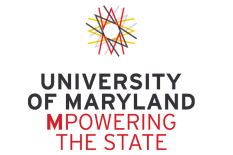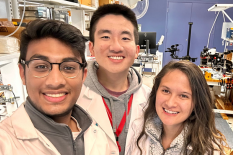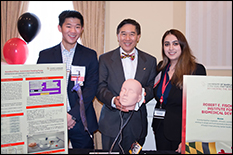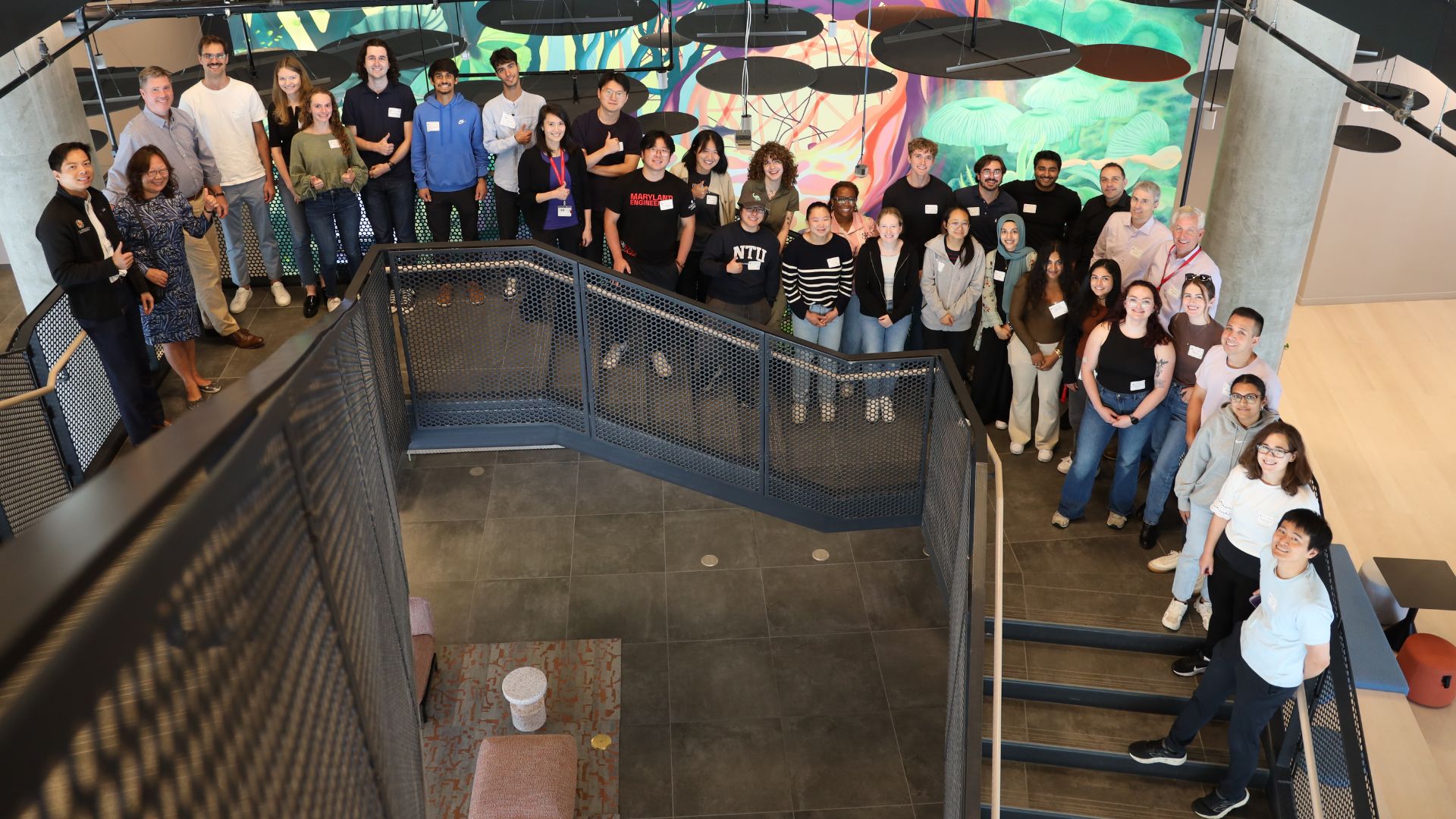News Story
Fischell Institute Welcomes New MPower Fellows: Chelsea Neumann and Joel Bannerman
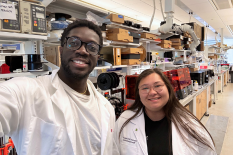
Chelsea Neumann and Joel Bannerman joined the Robert E. Fischell Institute for Biomedical Devices as the seventh cohort of Fischell Institute and MPower Entrepreneurship Fellows (MPower Fellows).
The MPower Fellowship supports recent graduates from the University of Maryland’s College Park and Baltimore campuses in transforming biomedical or medical device innovations into market-ready products. With help from the Fischell Foundry and faculty mentor Martha Wang, who also serves as the Fischell Institute’s assistant director, fellows are guided through the prototyping and commercialization process while simultaneously earning their Master of Engineering (M.Eng.) degree.
Neumann, who is pursuing her M.Eng. in bioengineering, joins the team with a history of medical device research and development. As an undergraduate at UMD, Neumann led the Bioengineering Alumni Cup Team for four years, where she showcased tenacity and an ability to think innovatively, while competing against other engineering departments to conceptualize and build a task-driven machine within limited parameters. Off campus, she spent years caring for and rehabilitating horses and dogs, cultivating her adaptability and empathy. Together, these experiences taught her to problem-solve under pressure and to design with compassion.
During an undergraduate internship, Neumann worked with a medical device startup, opening her eyes to entrepreneurship. That experience, paired with her interest in taking her senior capstone project — a balloon tracheostomy dilation device meant to decrease procedure time and mitigate risks associated with the current standard of care — beyond the classroom, solidified her passion for medical device design and biocompatibility, and led her to the MPower fellowship.
“I learned early on that engineering is as much about empathy as it is about invention,” Neumann said. “Through this fellowship, I hope to leverage my passion for bioengineering and to make a meaningful impact in the healthcare industry.”
Bannerman, who is pursuing his M.Eng. in bioengineering, has long been drawn to the connection between engineering and medicine. He entered college with the goal of attending medical school, but soon realized that his true passion was designing technologies that improve patient care.
Through the Gemstone Honors Program, Bannerman conducted and published novel research, giving him insight into how successful projects take shape.
Complemented by two internships at AstraZeneca and his senior year capstone project — a multifunctional medical device for monitoring opioid users’ vital signs that automatically delivers naloxone in the event of overdose — Bannerman’s experience made him an ideal candidate for the MPower Fellowship.
“I have found that engineering allows me to blend creativity with compassion,” Bannerman said. “Through the MPower Fellowship, I want to develop technologies that improve quality of life for people around the world.”
The program provides fellows with funding, lab space, and mentorship, in addition to enrollment in the M.Eng. program. The fellowship’s goal is to foster cross-campus collaboration and accelerate commercialization of university-based biomedical innovations.
“Chelsea and Joel represent the future of biomedical engineering — where technical excellence meets empathy and imagination,” said Wang. “They embody the spirit of the Fischell Institute, where meaningful innovation is rooted in understanding the human experience behind every design.”
Published November 14, 2025
